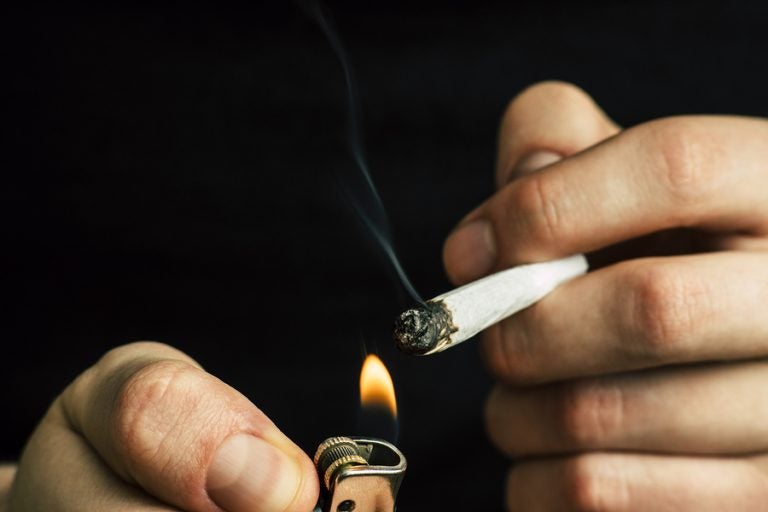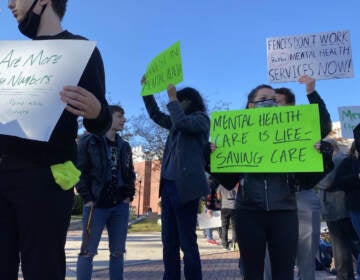Penn study: Marijuana doesn’t cause bad behavior — it’s the other way around
Results of a new study by University of Pennsylvania researchers contradict previous reports showing a connection between conduct problems and marijuana use.
Listen 1:19
The study offers several reasons why conduct problems might precede marijuana use. Kids with conduct problems are more likely to be attracted to rebellious behaviors. And marijuana is a way for troubled kids to self-medicate. (Big Stock)
Teenagers are using marijuana more than cigarettes, and they try it before their first tipple, according to recent studies. That’s got some parents worried. For years, marijuana has been decried as “gateway drug” — a path to bad friends, bad behavior, and harder drugs.
But a new study by University of Pennsylvania researchers has concluded those fears are misplaced.
“Concerns about marijuana leading to all kinds of other behavioral problems don’t seem to be supported,” said co-author Dan Romer. “We found no relationship between using marijuana and seeking out peers who use marijuana, and no relationship with conduct problems.”
The findings, recently published in the journal Addiction, are based on a research project that Romer and his colleagues launched in 2004: the Philadelphia Trajectory Study.
The study followed nearly 400 10- to-12-year-olds over five years, using annual interviews to track their drug use and behavior. To ensure truthfulness, the researchers used computers to conduct the interviews, and urine tests to validate the subjects’ accounts of drug use.
Their goal, Romer said, was “to see what kinds of drugs they were using, and what the consequences were of their drug use — what the predictors are, cognitively and socially.”
Romer and his colleagues were specifically interested in what researchers called “conduct problems.”
“Things like stealing, lying, using drugs without permission by parents, setting fires, skipping school,” Romer said. “Antisocial behavior that can, if it goes unabated, lead eventually to more serious problems as adolescents mature into adulthood.”
Romer said the study was prompted in part by previous research showing a connection between conduct problems and marijuana use.
“We had seen these studies that had been done in New Zealand back in the late ’90s that suggested that adolescents who used marijuana there had all kinds of horrible consequences, including conduct problems as well as other mental health issues,” Romer said. “It looked very strong, and it looked very scary.”
Using more detailed methods of tracking and more sensitive statistical methods, Romer and his colleagues wanted to know if they’d see the same thing among young people in Philadelphia.
After analyzing their data, Romer said, they found the opposite of the New Zealand studies.
“Previous research had suggested that using marijuana would lead to conduct problems — we found the exact reverse,” he said. “Conduct problems were predictive of using marijuana, and they were also predictive of finding friends who use marijuana.”
The study offers several explanations for why conduct problems might precede marijuana use. One is that kids with conduct problems are more likely to be attracted to rebellious behaviors. Another is that marijuana is a way for troubled kids with difficult family or peer relationships to self-medicate.
“Potentially, they find it soothing because they’re probably having lots of other problems,” Romer said.
The study doesn’t address other concerns related to marijuana use by teens — for example, how it affects depression or suicidal thoughts, which have been linked in adolescents to regular use. There’s also some evidence that marijuana could hasten or increase teens’ risk of developing schizophrenia.
Another concern is addiction. Romer said the study found that dependency is a risk among teens who use marijuana.
“You know, it’s not a harmless drug,” he said. “Some people are characterizing it as far less harmful than alcohol, which it may well be. But it’s still an addictive drug, which will be a problem for some people — not everyone, but some people.”
WHYY is your source for fact-based, in-depth journalism and information. As a nonprofit organization, we rely on financial support from readers like you. Please give today.





